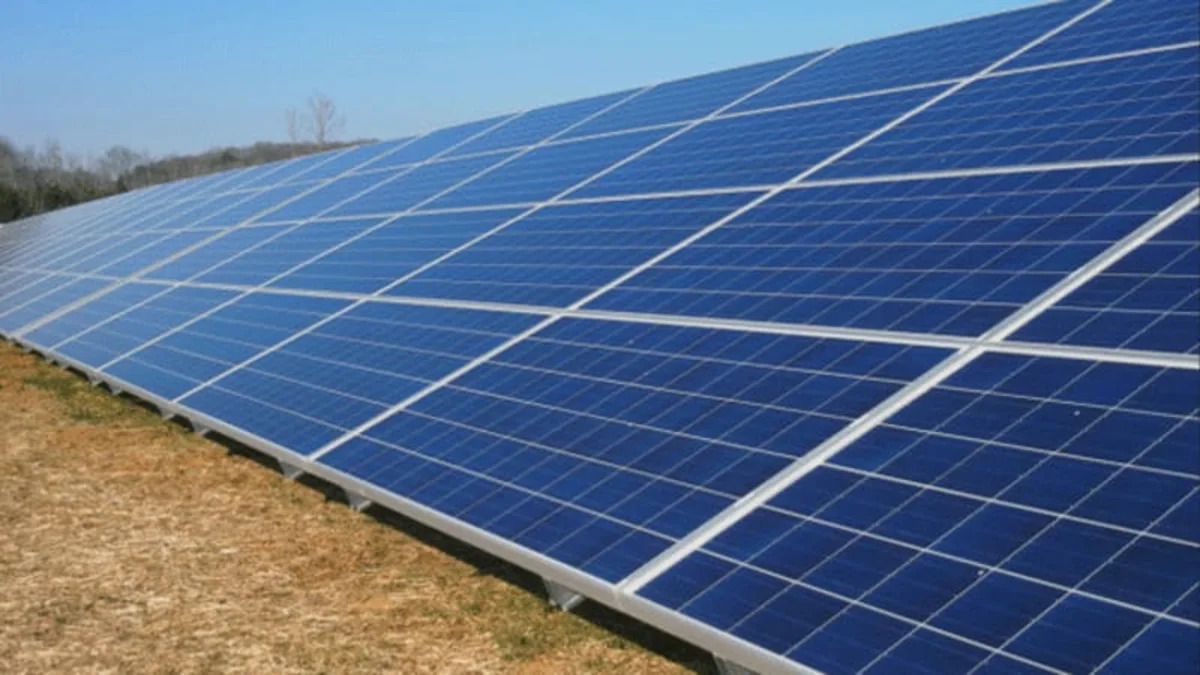Major automotive supplier Bosch is stepping out of the solar power business after having lost 2.4 billion euros (nearly $3.1 billion US) since starting up its solar energy subsidiary in 2008.
Bosch will end its solar power panel production early next year, and put parts of this business unit up for sale. Bosch's car parts division created the solar power business after it bought Aleo Solar and Ersol. The solar subsidiary lost 1 billion euros (about $1.28 billion US) last year.
After the German government curbed green energy subsidies and Chinese competitors flooded the market with cheap products, the business climate has been rough for Bosch. Other German solar companies are feeling the pinch – major solar companies SolarWorld and Conergy are in debt restructuring talks and Q-Cells filed for insolvency last year. "This is possibly the most painful experience that I have had to endure in my professional career," said Bosch chairman Franz Fehrenbach in a company statement.
German automakers have been feeling the squeeze as well from the government's clean energy campaign. They had been paying taxes on renewable energy during a time when vehicle sales were down. BMW has deployed wind turbine towers, and Daimler and Volkswagen are changing over to gas-powered plants. These power sources have been saving the automakers money on their energy costs – it's cheaper to generate their own energy than to pay taxes on renewables made by commercial producers.
German automakers have been fiscally conservative lately as auto sales have dropped, and that may have something to with their decisions to reject the European Union's push for adoption of HFO-1234yf refrigerant. The new refrigerant is scheduled to replace HFC-134a coolant in 2017. Daimler engineers discovered HFO-1234yf could spark a fire under the hood, with the potential to destroy the car and emit highly toxic gas while burning. Daimler, BMW and Volkswagen are walking away from HFO-1234yf, which is not going over well with the European Union.
Bosch will end its solar power panel production early next year, and put parts of this business unit up for sale. Bosch's car parts division created the solar power business after it bought Aleo Solar and Ersol. The solar subsidiary lost 1 billion euros (about $1.28 billion US) last year.
After the German government curbed green energy subsidies and Chinese competitors flooded the market with cheap products, the business climate has been rough for Bosch. Other German solar companies are feeling the pinch – major solar companies SolarWorld and Conergy are in debt restructuring talks and Q-Cells filed for insolvency last year. "This is possibly the most painful experience that I have had to endure in my professional career," said Bosch chairman Franz Fehrenbach in a company statement.
The German government had been handing out generous subsidies funded by electricity surcharges to encourage consumers to choose renewable energy over nuclear and fossil fuel. Germany changed course on the subsidies in an attempt to bring down overcapacity in the solar industry. In 2011, Germany produced 25,000 megawatts of electricity through solar power, nearly as much solar energy as was generated in the rest of the world combined. During that time, Chinese solar companies flooded global markets with cheap solar panels. The European Commission launched a dumping investigation to look into it.In 2011, Germany produced 25,000 megawatts of electricity through solar power, nearly as much solar energy as was generated in the rest of the world combined.
German automakers have been feeling the squeeze as well from the government's clean energy campaign. They had been paying taxes on renewable energy during a time when vehicle sales were down. BMW has deployed wind turbine towers, and Daimler and Volkswagen are changing over to gas-powered plants. These power sources have been saving the automakers money on their energy costs – it's cheaper to generate their own energy than to pay taxes on renewables made by commercial producers.
German automakers have been fiscally conservative lately as auto sales have dropped, and that may have something to with their decisions to reject the European Union's push for adoption of HFO-1234yf refrigerant. The new refrigerant is scheduled to replace HFC-134a coolant in 2017. Daimler engineers discovered HFO-1234yf could spark a fire under the hood, with the potential to destroy the car and emit highly toxic gas while burning. Daimler, BMW and Volkswagen are walking away from HFO-1234yf, which is not going over well with the European Union.


Sign in to post
Please sign in to leave a comment.
Continue